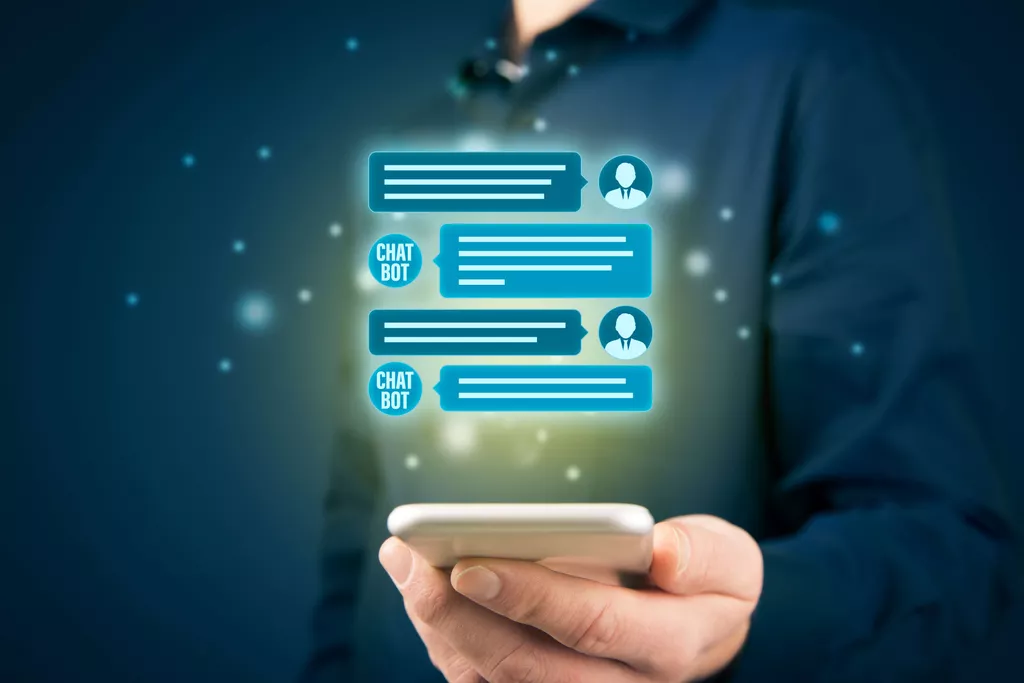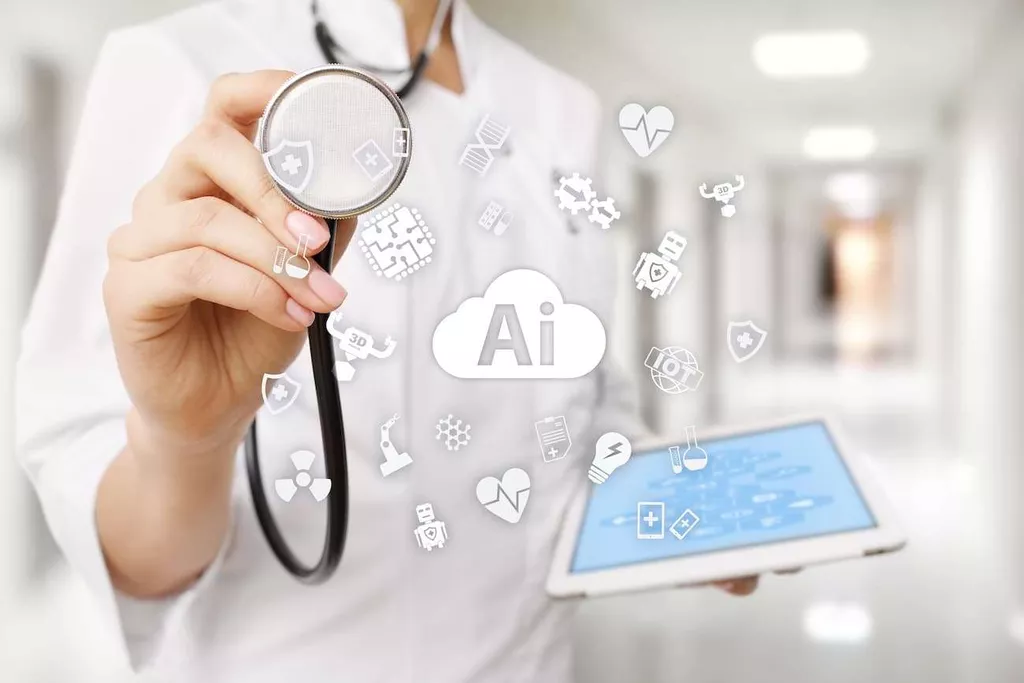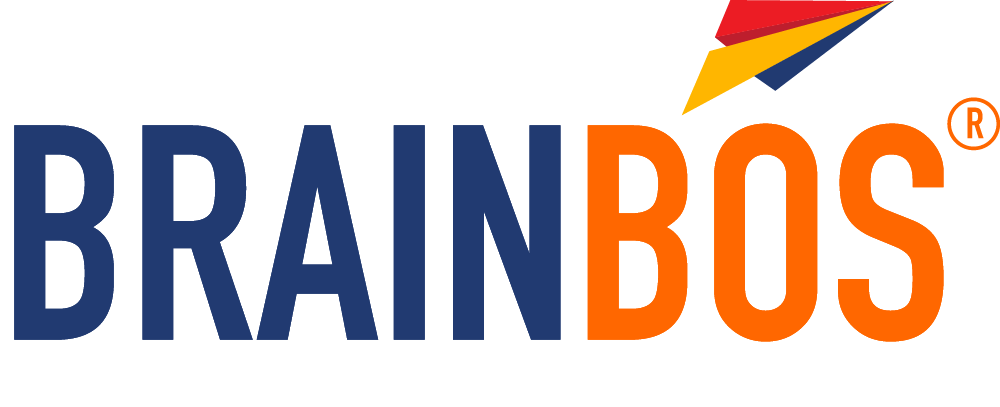AI-powered chatbots, like ChatGPT, have become popular tools for providing quick and accessible health advice. We surveyed 1,000 Americans and an additional 500 healthcare professionals about their thoughts on using AI tools in healthcare. Whether it’s customized telemedicine software, custom healthcare solutions, or HIPAA-compliant chatbots, Jelvix developers have the best experience to help you with everything technology related!
Researchers Propose ChatGPT-Based Personalized Disease … – HealthITAnalytics.com
Researchers Propose ChatGPT-Based Personalized Disease ….
Posted: Tue, 06 Jun 2023 13:30:00 GMT [source]
In terms of quality, ChatGPT responses were rated as “good” or “very good” (a score of 4 or higher) in 78.5% of cases, compared to just 22.1% for physician responses. This amounted to a 3.6 times higher prevalence of good or very good quality responses for the chatbot. Furthermore, ChatGPT responses were significantly longer and more detailed than physician responses, with an average of 211 words compared to 52 words for physicians. When we harness the best in technology, we create outcomes that better us all. With the right tools in place built by people who understand health, frontline health workers can do the jobs only people can do.
Meet patients where they are
However, collaborative efforts on fitting these applications to more demanding scenarios are underway. Beginning with primary healthcare services, the chatbot industry could gain experience and help develop more reliable solutions. By offering personalized care, preventive support, and increased efficiency, AI chatbots have the potential to revolutionize the healthcare industry and significantly improve the lives of patients worldwide. Chatbots could help improve health care by providing information, answering patients’ questions, and helping to sort out symptoms. A chatbot can tell you about general health or how to deal with a certain condition, for example. They also help healthcare providers by answering patients’ frequently asked questions and directing them to the right care.
An AI healthcare chatbot can also be used to collect and process co-payments to further streamline the process. Chatbot in the healthcare industry has been a great way to overcome the challenge. With a messaging interface, website/app visitors can easily access a chatbot. When it is your time to look for a chatbot solution for healthcare, find a qualified healthcare software development company like Appinventiv and have the best solution served to you. In order to evaluate a patient’s symptoms and assess their medical condition without having them visit a hospital, chatbots are currently being employed more and more.
Benefits of using AI chatbots to improve the healthcare experience
A chatbot can ask patients a series of questions to help assess their symptoms. Those responses can also help the bot direct patients to the right services based on the severity of their condition. Your patients can access the chatbot through a ton of different channels, giving them access to metadialog.com help anytime and anywhere. That’ll help your patients get a seamless and convenient experience when they need it. Our healthcare system, sadly, isn’t built to provide everyone with decent human caregivers. And until that changes, it’d be nice to have robots that could help us stay healthy.
- Here, we would like to explore some obstacles to the achievement of this goal and potential solutions to them, by considering ChatGPT as a disruptive technology.
- A healthcare chatbot app makes it increasingly easier to keep the user experience high and provide the services that users require.
- A healthcare chatbot can give patients accurate and reliable info when a nurse or doctor isn’t available.
- Moreover, these also help in locating healthcare clinics and scheduling appointments.
- Chatbots provide reliable and consistent healthcare advice and treatment, reducing the chances of errors or inconsistencies.
- Healthcare practices are already using chatbots to help with administrative tasks like scheduling appointments or requests for prescription refills.
One notable example is the Chemistry42 platform, developed by scientists at Insilico Medicine in 2020, is an automated machine learning platform designed specifically for drug design. It has the ability to discover new lead-like structures, making it a valuable tool in the pharma industry. By integrating advanced Generative AI algorithms with medicinal and computational chemistry methodologies, the platform generates innovative molecular structures with optimized properties. At Master of Code Global, we can seamlessly integrate Generative AI into your current chatbot, train it, and have it ready for you in just two weeks, or build a Conversational solution from scratch. In the past three years, venture capital firms have invested over $1.7 billion in Generative AI solutions.
AI Chatbot Meets Healthcare Industry
Healthcare AI chatbots have come for good, and their role in the healthcare industry is likely to keep growing in the upcoming years. This doesn’t mean that professionals will be replaced by robots or AI systems – at least for a long time. Instead, the fate of AI chatbots seems to be combining their skills with those abilities that are still unique to human beings aiming to radically transform the way both patients and physicians experience healthcare. Survivors of cancer, particularly those who underwent treatment during childhood, are more susceptible to adverse health risks and medical complications. Consequently, promoting a healthy lifestyle early on is imperative to maintain quality of life, reduce mortality, and decrease the risk of secondary cancers [87]. According to the analysis from the web directory, health promotion chatbots are the most commonly available; however, most of them are only available on a single platform.

The risk of reporting outcomes was low, as all the studies prespecified their outcomes and hypotheses. All 27% (4/15) of RCTs adopted appropriate randomized treatment allocation and reported concealment of allocation sequence from the participants, and 75% (3/4) of them established similarity of groups at the baseline. The non-RCT studies (11/15, 73%) were not applicable for the assessment of the randomization process. An AI healthcare chatbot for insurance assistance and claim filing purposes can be beneficial for everyone. Around the country, million claim their healthcare insurance, and that is where an AI healthcare chatbot can make the entire process convenient.
What are Chatbots Used for in Healthcare? Key Use Cases
An AI-enabled chatbot is a reliable alternative for patients looking to understand the cause of their symptoms. On the other hand, bots help healthcare providers to reduce their caseloads, which is why healthcare chatbot use cases increase day by day. The gathering of patient information is one of the main applications of healthcare chatbots. By using healthcare chatbots, simple inquiries like the patient’s name, address, phone number, symptoms, current doctor, and insurance information can be utilized to gather information. When patients come across a long wait period, they often cancel or even change their healthcare provider permanently. The use of chatbots in healthcare has proven to be a fantastic solution to the problem.
What are the disadvantages of medical chatbots?
- No Real Human Interaction.
- Limited Information.
- Security Concerns.
- Inaccurate Data.
- Reliance on Big Data and AI.
- Chatbot Overload.
- Lack of Trust.
- Misleading Medical Advice.
They only must install the necessary sensors and an application to perform the required tasks. As a result, the clinic staff can quickly access patients’ vital signs and health status. Some patients need constant monitoring after treatment, and intelligent bots can be useful here too. Visitors can start a conversation with a specialist through the chatbot, calculate potential treatment costs, read the latest research, get special offers, and so on. Part of the responsibility for the ineffectiveness of medical care lies with patients. According to Forbes, one missed visit can cost a medical practice an average of $200.
Benefits of Building Chatbot Healthcare Apps
With a 99.9% uptime, healthcare professionals can rely on chatbots to assist and engage with patients as needed, providing answers to their queries at any time. Despite the many benefits of AI chatbots in healthcare, there are also potential challenges and concerns. Ensuring the accuracy and reliability of chatbot-generated advice is crucial, as incorrect information could have serious consequences for patients. Additionally, there are concerns about data privacy and security, as chatbots often require access to sensitive patient information. Artificial intelligence (AI) has been making significant strides in various industries, and healthcare is no exception.
- Additionally, ChatGPT’s performance on the examination may not fully represent its ability to handle complex and nuanced medical situations in real-world settings.
- These chatbots targeted healthy lifestyles (7/8, 88%; HLCC, Paola [22], SFA [24], NAO [5], HCAI [28], Ida [32], and Chat1 [33]) and the reduction of substance misuse (1/8, 12%; Woebot [31]).
- In addition to bringing new leads, these chatbots can help you make the best business decisions at the right moment.
- Using the integrated databases and applications, a chatbot can answer patients’ questions on a healthcare organization’s schedule, health coverage, insurance claims statuses, etc.
- Minmed is a diverse healthcare group that implements a chatbot on its website and provides comprehensive information on its health screening packages, lab locations, COVID-19 detection tests, and more.
- Harnessing AI capabilities, chatbots can provide thorough aid and counsel to patients, as well as follow-up consultations and treatments.
Moreover, fundamental information like age and symptoms provide a prompt answer. Design the conversational flow of the chatbot to ensure smooth and intuitive interactions with users. Plan the conversation flow, including how the chatbot will greet users, ask questions, and provide responses. Incorporate error handling and fallback mechanisms to handle situations where the chatbot cannot understand or respond to user inquiries.
ChatGPT might replace your doctor — and it will actually do a better job of caring for you
This empowers patients with comprehensive knowledge, enabling them to make informed decisions about their medications and better manage their health. The convenience, accuracy, and personalized support offered by Generative AI in medication assistance enhance patient adherence and contribute to improved health outcomes. By regularly monitoring a patient’s health data, chatbots can identify potential health risks and provide early intervention.
- However, in many cases, patients face challenges tracking their medicine intake and fail to adhere to their medication schedule.
- OTC (Over the counter) assistance is a valuable feature provided by Generative AI chatbots.
- To leverage these benefits, our first step should be to advocate for responsible use and continued refinement of these AI-powered tools.
- Incorporate error handling and fallback mechanisms to handle situations where the chatbot cannot understand or respond to user inquiries.
- You feel icky and call an advice nurse; they ask preset questions to determine whether you should get to an ER or just go take a Tylenol.
- The use of Natural Language Processing allowed us to create a more human-like medical chatbot.
This can lead to unintended adverse outcomes, especially in the case of sensitive topics. Therefore, in the context of the nascent use of AI technologies, future studies should assess and report AI performance from ethical and safety standpoints. Almost 75% (11/15) of the articles were published in the years 2019 and 2021, indicating that the use of AI-driven chatbot interventions for behavior changes is at a nascent stage.
All-Inclusive Medical Care
For example, a user can ask the chatbot to provide information about walk-in clinics nearby and their corresponding wait times. The chatbot would then gather real-time data from various clinics, taking into account factors such as distance and current patient volumes. Based on this information, the chatbot would present a list of clinics, along with their estimated wait times, allowing the user to make an informed decision on where to seek immediate medical care. Prescription summary assistance is a remarkable use case provided by Generative AI chatbots. Instead of dealing with lengthy and laborious instructions, users can engage in a conversational interaction to receive a concise summary of their prescription medication. For instance, a patient can inquire with the chatbot regarding the benefits of a particular drug, its potential side effects, and the proper way to take it.
Chatbots in consumer finance – Consumer Financial Protection Bureau
Chatbots in consumer finance.
Posted: Tue, 06 Jun 2023 14:56:13 GMT [source]
By automating certain aspects of patient communication, chatbots can help prevent healthcare professionals from becoming overwhelmed and improve their overall well-being. To address the challenges of using ChatGPT in medicine, medical professional organizations should consider establishing suitable frameworks to monitor and assess the quality of ChatGPT for applications in healthcare. This will involve the provision of clear guidelines for users on how to use ChatGPT correctly and guidance for service providers on safely implementing ChatGPT as a medical chatbot. A major consideration should involve setting parameters for the safe usage of ChatGPT. For example, its functions could be limited to particular areas where ChatGPT has demonstrated accuracy, such as diagnosis, education, and healthcare. Through implementation of these measures, ChatGPT could become an invaluable asset to the medical profession.
Digital assistants can send patients reminders and reduce the chance of a patient not showing up at the scheduled time. These chatbots employ artificial intelligence (AI) to quickly determine intent and context, engage in more complex and detailed conversations, and create the feeling of talking to a real person. The best part of AI chatbots is that they have self-learning models, which means there is no need for frequent training. Developers can create algorithmic models combined with linguistic processing to provide intelligent and complex conversational solutions. As an important component of proactive healthcare services, chatbots are already used in hospitals, pharmacies, laboratories, and even care facilities.

What are medical chatbots?
Medical chatbots are AI-powered conversational solutions that help patients, insurance companies, and healthcare providers easily connect with each other. These bots can also play a critical role in making relevant healthcare information accessible to the right stakeholders, at the right time.

